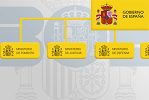Rights of passengers travelling in or from the EU by bus
Content
Regulation on the rights of passengers and scope of application
Regulation (EU) No 181/2011 ![]() concerning the rights of passengers in bus and coach transport establishes a set of minimum rights for bus and coach passengers within the European Union:
concerning the rights of passengers in bus and coach transport establishes a set of minimum rights for bus and coach passengers within the European Union:
Firstly, it applies to regular services where the scheduled distance of the service is 250 km or more. If the distance of the regular services is shorter, certain rights will apply in any case.
Secondly, certain rights apply to services where the initial boarding place or the final place of destination of passengers are situated in the territory of a Member State.
Each EU Member State has designated a competent body responsible for monitoring compliance with this Regulation in its territory.
In the case of Spain, the authority responsible for enforcing compliance with this Regulation is the Ministry of Transport, Mobility and the Urban Agenda, through the Directorate-General for Land Transport (DGTT).
The DGTT is also the designated body with which any passenger can file a complaint for non-compliance with the Regulation (rights of persons with disabilities or persons with reduced mobility, boarding, cancellations, delays, tickets and fares, loss or damage of luggage).
To learn more about the scope of application, click here![]() .
.
Bus passengers’ rights and the European Commission
The European Commission has the task of protecting passengers’ rights for all modes of transport and ensuring that the Community rules setting out these rights are applied.
Non-discrimination (tickets and fares)
At the time of purchasing tickets for bus and coach passenger transport services, the conditions and fares will be the same for all passengers and without any discrimination in relation either to the end customer’s nationality or the business place of the carriers or vendors of tickets in the Union.
With the exception of regular services with a scheduled distance of less than 250 km, the carrier will issue a ticket to the passenger (it may also be issued in electronic form), unless other documents grant the right to transport.
Death of, or personal injury to, passengers in the event of an accident. Loss of or damage to luggage in the event of an accident
With the exception of regular services where the scheduled distance is less than 250 km:
- Passengers are entitled to compensation for death or personal injuries due to accidents resulting from the use of bus and coach services. The conditions and amount of compensation are regulated by national law.
- Passengers are entitled to compensation for loss of or damage to luggage due to accidents resulting from the use of bus and coach services. The conditions and amount of compensation are regulated by national law. In Spain, the Land Transport Act (Ley de Ordenación de los Transportes Terrestres) establishes that, for transport included in the scope of application of Regulation (EU) 181/2011, the liability of carriers for damage to or loss of luggage as a result of accidents will be limited to EUR 1 200 per item of luggage, unless more favourable amounts or conditions have been expressly agreed upon for the passenger.
- The carrier will provide reasonable and proportionate assistance to passengers for their immediate practical needs following the accident. This assistance will include, where necessary, accommodation, food, clothing, transport and first aid. The carrier may limit the total cost of accommodation to EUR 80 per night and per passenger, for a maximum of two nights.
In the event of the death of a passenger, this right will apply at least to those persons with whom the passenger had or would have had an obligation to provide for.
Persons with disabilities and persons with reduced mobility (PRM)
Right to transport, tickets and fares
For all regular services, carriers, travel agents and tour operators cannot in relation to persons with disabilities or persons with reduced mobility:
-
Ask them to pay extra for reservations and tickets
-
Refuse to accept a reservation from, to issue or otherwise provide a ticket to, or to admit a person on the grounds of disability or of reduced mobility.
Exceptions:
Exceptions can only be made to transporting persons with disabilities or persons with reduced mobility when it is not possible to meet applicable safety requirements, or when the design of the bus, coach or transport infrastructure makes it impossible to transport the person in a safe and operationally viable manner.
Regular services where the scheduled distance is 250 km or more and refuse to accept a reservation:
In the case of regular services where the scheduled distance is 250 km or more, if the carrier, travel agent or tour operator refuses to accept a reservation, to provide a ticket or to admit a passenger for the abovementioned reasons, they will immediately inform the passenger of the reasons for the refusal and, if the passenger so requests, they will provide this information in writing.
Furthermore, in case of refusal to accept a reservation or issue a ticket, the carrier will inform the person in question of any acceptable alternative service operated by the carrier. If the reasons for which the passenger in question was denied reservation or admission can be resolved by the presence of a person who can provide the necessary assistance, this passenger may be accompanied by a person of their choice free of charge.
Regular services where the scheduled distance is 250 km or more and where the carrier has been duly informed about their specific needs:
For regular services where the scheduled distance is 250 km or more, if a person with disabilities or a person with reduced mobility holds a ticket or reservation and has duly informed the carrier about their specific needs and, despite this, they are denied admission due to their disability or reduced mobility, they will be entitled to choose between reimbursement and the alternative route, although this second option is subject to the availability of suitable travel services.
Carriers and terminal managing bodies will establish non-discriminatory access conditions applicable to the transport of persons with disabilities or persons with reduced mobility. These conditions will be made publicly available and physically distributed at the passenger’s request.
Accessibility for persons with reduced mobility to stations and vehicles
For regular services where the scheduled distance is 250 km or more, carriers and terminal managing bodies will provide, within their respective areas of competence and on the stations designated for this purpose, free assistance to persons with disabilities or with reduced mobility, which will include at least the following:
-
A point inside or outside the terminal at which disabled persons or persons with reduced mobility can announce their arrival and request assistance.
-
Transfer from the designated point to the check-in counter, waiting room, and boarding area.
-
Boarding of the vehicle using lifts, wheelchairs or other assistance, as needed.
-
Luggage handling.
-
Luggage retrieval.
-
Exiting the vehicle.
-
Travelling with a service dog on buses or coaches.
-
Access to seats.
What people with disabilities or reduced mobility need to do to access these services:
-
Inform the carrier and terminal managing body of their specific needs no later than 36 hours before the time assistance is required.
-
Be at the designated point in the terminal at the agreed time prior to departure (no more than 60 minutes before the announced departure time, or at least 30 minutes before the announced departure time if no specific time has been set).
For regular services where the scheduled distance is 250 km or more, carriers will also provide free assistance on buses and coaches to persons with disabilities or persons with reduced mobility, including at least the following:
-
Provision of essential travel information in accessible formats at the passenger’s request.
-
Assistance with boarding/exiting during breaks in the journey if there is additional personnel on board besides the driver.
Loss of or damage to wheelchairs and other mobility equipment
For all services, when a carrier or terminal managing body has lost or damaged the mobility equipment (wheelchair and other assistive devices), they will have to pay compensation equivalent to the cost of replacement or repair (where it is possible to repair the equipment) of the lost or damaged equipment or items.
If necessary, they will make every effort to temporarily replace lost or damaged mobility equipment.
Boarding, delays and cancellations
Cancellations or delayed departures
For regular services where the scheduled distance is 250 km or more, passengers departing from a station will be informed of the situation by the carrier or the terminal managing body, as appropriate, in the event of cancellation or delay in departure, as soon as possible and in any event no later than 30 minutes after the scheduled departure time, and of the estimated departure time as soon as this information is available.
Missing a connection
In the event of passengers missing a connection due to a cancellation or delay, the carrier or the terminal managing body, as appropriate, will make reasonable efforts to inform them of alternative connections. The carrier will also provide this information to passengers electronically, where possible, if the passengers so request it, and if they have provided the carrier with the necessary contact details.
Overbooking
For regular services where the scheduled distance is 250 km or more, in the case of overbookings or where a carrier reasonably expects a service to be cancelled or a delay in departure from a terminal of more than 120 minutes, passengers have the right to choose between:
- Re-routing to the final destination, at no additional cost and under comparable conditions, at the earliest opportunity, and
- Reimbursement of the full ticket price, combined, where relevant, with a return service by bus or coach free of charge to the first point of departure, as set out in the transport contract, at the earliest opportunity.
This right to choose applies if the service is cancelled or delayed by more than 120 minutes from a bus station. However, it does not apply to passengers with open tickets where the departure time is not specified, except for holders of a travel pass or season ticket.
Compensation
Similarly, for regular services where the scheduled distance is 250 km or more:
- If the carrier fails to offer passengers the above-mentioned choice of reimbursement or re-routing, passengers will be entitled to compensation of up to 50 % of the ticket price. This entitlement to compensation and any reimbursement of the ticket price will not prevent passengers from claiming, under national law, compensation for damages before the national courts in respect of losses resulting from the cancellation or delay of regular services.
- In the event of breakdowns of the bus or coach during the journey, the carrier will send another bus or coach to the location where the original bus or coach has broken down, and either continue the service and take the passengers to their destination or to a suitable waiting point or station from where they can continue their journey.
You also have the following rights:
Finally, for regular services where the scheduled distance is 250 km or more and a scheduled duration of more than three hours, in cases of cancellations or delays of 90 minutes or more, the carrier will offer the passenger free of charge:
- Snacks, meals and refreshments in reasonable proportion to the waiting time or delay, provided they are available on the bus or at the station or can be reasonably provided.
- Hotel accommodation or alternative lodgings, as well as assistance in arranging transportation between the station and the place of accommodation when an overnight stay is necessary. Carriers may limit the total cost of accommodation to EUR 80 per night per passenger for a maximum of two nights (this limitation does not include return transport between the station and the place of accommodation).
- Carriers are not required to cover accommodation costs if cancellations or delays are due to extreme weather conditions or major natural disasters.
Travel information
For all regular services, carriers and terminal managing bodies will, within their respective areas of competence, provide passengers with adequate information throughout their journey. Where feasible, this information will be provided in accessible formats upon request.
Information on passenger rights
For all regular transport operations, carriers and terminal managing bodies will, within their respective areas of competence, ensure that passengers are provided with the following:
- Appropriate and comprehensible information regarding their rights under European Regulations at the latest at the time of departure.
- This information will be provided at terminals and where applicable, on the internet.
- The information will be provided, whenever possible, in an accessible format where requested by persons with disabilities or with reduced mobility.
- This information will include the necessary contact details of the national enforcement body or bodies.
Loss of or damage to luggage not resulting from an accident
While this circumstance is not regulated in the Community Regulation, the Land Transport Act provides in such cases that the liability or damage to or loss of luggage is limited to EUR 450 per item, unless more favourable amounts or conditions have been expressly agreed upon for the passenger.
Complaints
Complaints to carriers
What to do in the event of an incident
If an incident has occurred that resulted in a breach of the aforementioned rights:
What should you do? File a complaint with the carrier.
Deadline for filing a complaint: within three months from the date on which the regular service was provided or should have been provided.
Where to file a complaint: Fill in the complaint forms that transport undertakings usually have available at information desks or ticket sales points in stations, or contact the carrier via their website.
Requirements for filing complaints: Keep the ticket, luggage receipt, if any, and other documents used. In addition, the complaint must be clear, concise and legible. It is important to provide precise information about the date, time, place, and causes of the complaint, as well as the personal details of the complainant and the itinerary.
How long does it take to get a reply? The carrier must notify you within one month to inform you that your complaint has been upheld, rejected or is still under consideration, and must provide the final reply within three months from the date of receipt of the complaint.
Exceptions: The aforementioned deadlines do not apply to compensation for death, personal injury, loss of or damage to luggage in the event of an accident.
Filing a complaint with the DGTT
Requirements:
- One month has passed without a reply from the carrier, or
- The carrier’s reply to the complaint is not satisfactory
You can then initiate the procedures to file the complaint with the DGTT, free of charge.
You should keep a copy of the complaint filed with the carrier, as well as the reply and conversations held with them, in order to be able to process the complaint with the DGTT.
After filing a complaint with the DGTT, it will assess whether there has been any non-compliance with Regulation 181/2011 (Opens in a new window) and will request information from the road transport company about the events, gather any necessary additional information and examine whether the company has complied with the provisions of the European Regulation.
Once assessed, the DGTT will reply to the applicant within 90 days of receipt of the complaint (this may be extended in certain cases).
National enforcement bodies. Special referral to the Transport Arbitration Boards
Each Member State of the European Union has designated a body or bodies responsible for enforcing the rights set out in the Regulation.
In Spain, the enforcement bodies of the Regulation are the Ministry of Transport, Mobility and the Urban Agenda and the Departments of Transport of the Autonomous Communities, each within their respective sphere of competence.
In addition, there are Transport Arbitration Boards in the Autonomous Communities and in the cities of Ceuta and Melilla, whose function is to resolve commercial claims related to the performance of land transport contracts, before which the user can file a claim.
The Arbitration Board selected by the user must be the competent Board for the place of origin or destination of the transport, or the Board corresponding to the domicile of the undertaking providing the service (provided that it is on Spanish territory), unless it has been expressly agreed in writing that a specific Board will hold jurisdiction. Users may also opt for the competent Board in the place where they have their habitual residence if it is within Spanish territory.
The limitation period will be in accordance with Article 9(1) of the Land Transport Act. (Opens in a new window)
It should be noted that Transport Arbitration Boards (Opens in a new window) do not have the status of Alternative Dispute Resolution (ADR) bodies.
All of the above is without prejudice to the competences corresponding to the Directorate-General for Consumer Affairs (Opens in a new window), under the Ministry of Health, Consumer Affairs and Social Welfare.
Courts of Justice
If you are not fully satisfied with the solution offered by the carrier or if it fails to act in accordance with the rules, you can take your case to the courts of justice by filing a lawsuit against the carrier to enforce your rights and seek compensation for damages, if you think it appropriate.
In this respect, we would like to inform you that the DGTT does not have any competence with regard to private transport contracts, and cannot therefore admit claims or legal proceedings against the transport companies, since there is no legal relationship between the carrier and the Road Transport Authority
Relevant links
Information for each Autonomous Community











Andalucía Aragón Asturias, Principado de Balears, Illes Canarias Cantabria Castilla y León Castilla-La Mancha Cataluña Ciudad de Ceuta Ciudad de Melilla Comunitat Valenciana Extremadura Galicia Madrid, Comunidad de Murcia, Región de Navarra, Comunidad Foral de País Vasco Rioja, La
Legal and/or technical references
-
Law 16/1987 of 30 July 1987 governing land transport, Articles 37 and 38

-
Regulation implementing the law, approved by Royal Decree 1211/1990 of 28 September 1990, Articles 6 to 12

-
Order FOM/3386/2010 of 20 December 2010 establishing standards of fulfilment by the transport arbitration panels of functions of storage and disposal of goods

-
Regulation (EU) No 181/2011 of the European Parliament and of the Council of 16 February 2011 concerning the rights of passengers in bus and coach transport and amending Regulation (EC) No 2006/2004 Text with EEA relevance











